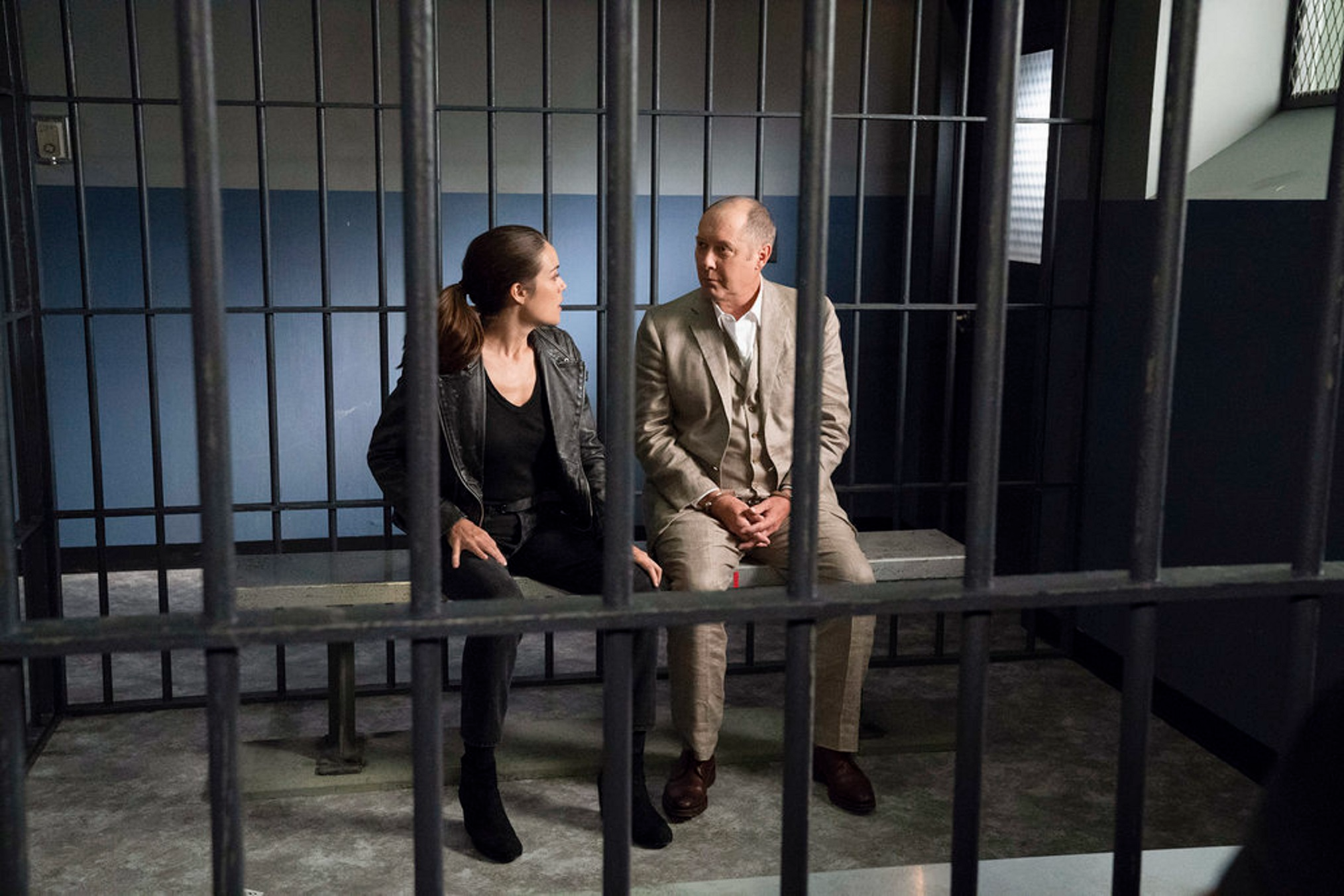
Megan Boone on the ‘Blurred’ Line Between Right & Wrong in The Blacklist Season 6
Season 6 of The Blacklist threw us headfirst into a world where allegiances shifted faster than Raymond Reddington could concoct an escape plan. With Liz Keen more determined than ever to uncover the truth about her past and Red’s real identity, the lines between who to trust and what constituted justice became increasingly hazy. Megan Boone, with her nuanced portrayal of Liz’s evolving moral compass, was our guide through this complex terrain. Her insights into the “blurred” line between right and wrong in that particular season offer a deeper understanding of the characters’ motivations and the show’s overarching themes.
The Shifting Sands of Morality in The Blacklist
From its inception, The Blacklist has never presented a simple dichotomy of good versus evil. Raymond Reddington, the criminal mastermind turned FBI informant, operates in a morally ambiguous space, often justifying his actions with a twisted logic that somehow yields positive results. Season 6 amplified this moral complexity, forcing Liz and the task force to confront uncomfortable truths and make ethically challenging decisions.
Reddington’s Justification: The Greater Good?
Red’s actions, while often illegal and sometimes brutal, are frequently framed as serving a “greater good” that only he can foresee. Season 6 pushed this justification to its limits, making both the characters and the audience question the validity of his methods and the true cost of his “protection.”
Liz’s Evolving Ethical Compass
Liz’s journey throughout the series has been one of constant moral evolution. Initially a by-the-book FBI agent, her entanglement with Reddington has forced her to confront the grey areas of justice. Season 6 saw her grappling with increasingly difficult choices as she sought answers, sometimes blurring her own ethical boundaries in the process.
Unpacking the Moral Dilemmas of Season 6
Season 6 was a pressure cooker of ethical quandaries. From Liz’s clandestine investigations to the task force’s uneasy alliances, every episode seemed to present a new shade of grey. Megan Boone’s perspective helps illuminate the weight of these dilemmas on the characters.
Trusting the Untrustworthy: A Necessary Evil?
A recurring theme in Season 6 was the necessity of trusting individuals with questionable pasts or motives in order to achieve a desired outcome. Liz, in her pursuit of the truth, often had to rely on unreliable sources, forcing her to weigh the potential benefits against the inherent risks and moral compromises.
The Ends Justifying the Means: A Dangerous Path?
The season frequently explored the age-old question of whether the ends justify the means. Did the potential for uncovering a larger conspiracy or bringing down a more significant threat excuse morally dubious actions taken along the way? This was a constant source of internal conflict for Liz and the task force.
Megan Boone’s Perspective on Liz’s Choices
Megan Boone’s portrayal of Liz Keen has always been layered with a deep understanding of the character’s internal struggles. Her insights into Liz’s motivations during the morally ambiguous landscape of Season 6 provide valuable context for her actions.
Balancing Justice and Personal Vendetta
In Season 6, Liz’s quest for the truth about Reddington often blurred the lines between her duty as an FBI agent and her personal desire for answers, fueled by a sense of betrayal. Boone likely navigated this tension by portraying Liz’s internal conflict as she tried to reconcile these competing motivations.
The Weight of Compromise and its Consequences
Liz’s journey in Season 6 involved numerous moral compromises, each carrying its own weight and potential consequences. Boone’s performance likely conveyed the emotional toll of these decisions on Liz, highlighting the internal struggle of an agent forced to operate outside the traditional boundaries of law enforcement.
The Impact of Blurred Morality on the Task Force
Liz wasn’t alone in navigating the grey areas of Season 6. The entire task force, under the unconventional guidance of Reddington, often found themselves in ethically challenging situations.
Loyalty Tested: Following Red’s Lead
The task force’s loyalty to Reddington has always been a complex issue. Season 6 pushed this to the limit as Red’s secrets and manipulations became more apparent, forcing the team members to question their allegiance and the ethical implications of their continued collaboration.
Questioning Authority and Established Protocols
The morally ambiguous nature of their work with Reddington often required the task force to operate outside established protocols and even question the authority of the very agency they served. This created internal friction and forced them to confront the ethical implications of their unconventional methods.
The Audience’s Struggle with Moral Ambiguity
Just as the characters on The Blacklist grappled with the blurred lines of right and wrong in Season 6, so did the audience. The show masterfully presented situations where it was difficult to definitively label actions as purely good or evil.

Sympathizing with Unconventional Characters
One of the show’s strengths is its ability to make us sympathize with characters who operate in morally grey areas, particularly Reddington. Season 6 likely continued this trend, challenging our preconceived notions of heroes and villains.
Debating the Justifiability of Actions
The complex ethical dilemmas presented in Season 6 often sparked debate among viewers, forcing us to consider our own moral compasses and question the justifiability of the characters’ actions in pursuit of their goals.
Thematic Resonance of Moral Ambiguity
The exploration of blurred lines between right and wrong in Season 6 wasn’t just a plot device; it served a deeper thematic purpose, reflecting complex realities of the world.
Reflecting the Complexities of Justice
The Blacklist, particularly in Season 6, mirrored the often-messy and morally ambiguous nature of real-world justice, where clear-cut solutions are rare and difficult choices often have unintended consequences.
Challenging Traditional Notions of Good and Evil
The show consistently challenges traditional notions of good and evil, presenting characters with multifaceted motivations and forcing us to look beyond simple labels. Season 6 likely amplified this, highlighting the shades of grey that exist within individuals and their actions.
Megan Boone’s Lasting Impact on Liz Keen
Megan Boone’s portrayal of Liz Keen was central to navigating the moral complexities of The Blacklist. Her ability to convey Liz’s internal struggles and evolving ethical framework was a key element of the show’s success.
Portraying Vulnerability and Strength
Boone masterfully balanced Liz’s vulnerability as she grappled with personal betrayals and her strength as she relentlessly pursued the truth, even when it meant crossing moral boundaries.
Evolving with the Show’s Moral Landscape
As the show delved deeper into morally ambiguous territory, Boone’s portrayal of Liz evolved accordingly, reflecting her character’s increasing understanding of the grey areas of justice and her willingness to operate within them.
Conclusion: Navigating the Grey with Megan Boone’s Guidance
Megan Boone’s insights into the “blurred” line between right and wrong in The Blacklist Season 6 offer a valuable perspective on the moral complexities that defined that chapter of the show. Through her nuanced portrayal of Liz Keen, we were forced to confront uncomfortable truths, question traditional notions of justice, and grapple with the ethical implications of the characters’ choices. Season 6 served as a potent reminder that in the shadowy world of espionage and high-stakes crime, the path to justice is rarely clear-cut, and sometimes, the only way to navigate the darkness is to embrace the grey.
FAQs
- What was a key theme regarding morality in The Blacklist Season 6? A central theme was the “blurred” line between right and wrong, forcing characters to make ethically challenging decisions and question traditional notions of justice.
- How did Megan Boone portray Liz Keen’s struggle with morality in Season 6? Boone nuanced Liz’s internal conflict as she balanced her duty as an FBI agent with her personal quest for truth, often grappling with the weight of moral compromises.
- How did the morally ambiguous landscape of Season 6 affect the task force? The task force often found themselves questioning their loyalty to Reddington and the ethical implications of operating outside established protocols under his guidance.
- Did The Blacklist Season 6 challenge the audience’s perception of good and evil? Yes, the season presented complex ethical dilemmas and characters with multifaceted motivations, often making it difficult for the audience to definitively label actions as purely good or evil.
- What was Megan Boone’s overall impact on the portrayal of moral ambiguity in The Blacklist? Boone’s layered portrayal of Liz Keen, conveying her vulnerability and strength as she navigated morally grey territory, was crucial to the show’s exploration of these complex themes.
